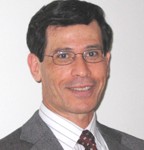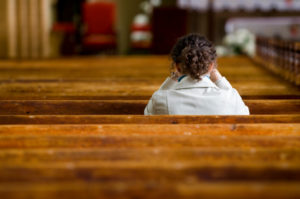 I had the opportunity to interview Dr. Hamdy El-Rayes about his new book, Mental Wellness: A Spiritual Journey. In his book, he explores the connection between spirituality and depression and how the lack of spirituality can be a cause of depression. Dr. Hamdy grew up in Egypt in the Muslim faith and experienced depression as a young man. He found a spiritual healer in the Sufi Muslim tradition who helped him recover, but found that his depression returned when he came to North America.
I had the opportunity to interview Dr. Hamdy El-Rayes about his new book, Mental Wellness: A Spiritual Journey. In his book, he explores the connection between spirituality and depression and how the lack of spirituality can be a cause of depression. Dr. Hamdy grew up in Egypt in the Muslim faith and experienced depression as a young man. He found a spiritual healer in the Sufi Muslim tradition who helped him recover, but found that his depression returned when he came to North America.
Dan: Can you tell us about your background?
Hamdy: I have a MBA and Ph.D. in Electrical Engineering and currently live in British Columbia in Canada. I also teach at the British Columbia Institute of Technology and work in upper management there. I became interested in the subject of depression because I have suffered from depression and anxiety. I found that there was no help out there that could help me heal with spirituality and that’s when I decided to take my own future in my hands and decided to use my skills and research background to find a way out. That is what led me into this work. That is what led me to write a book, Mental Wellness: A Spiritual Journey, on depression and found the H.R. Mental Wellness Center here.
Dan: How old were you when you first experienced depression?
Hamdy: It started at a very young age. My first time was when I was 14 years old. I then recovered and managed to find my own way through a spiritual teacher and I kind of brought spirituality into my life. I didn’t struggle with any depression again until I came here to Canada. I found that the North American lifestyle takes you away from yourself and you lose your sense in the process of living a life here. That’s what happened to me.
Dan: Can you elaborate on that? What is it about our culture that creates and sustains depression?
Hamdy: We live in a very fast-paced culture. We are driven from the time we wake up until the time we go to bed. We don’t have time to interact with ourselves. We don’t have time to reflect on our life with all the technology around us to keep us moving at a fast pace – cell phones, computers, IPAD’s and you-name-it devices. Today we are distant from a sense of spirituality in our lives. This drift really began about a century ago with the theories of Sigmund Freud. He had an enormous influence on the university culture in Europe, the United States and the educated people of his time. His influence and those of his protégés continue to this day. He considered religion, the more formal and institutional practice of religion, as a kind of mental disorder.
Dan: That is a very interesting. I think when we talk about depression in contemporary culture in the west, we often talk about treating depression with medication and psychotherapy because that is what the psychiatric and psychological establishment tells us to do. But there is not much discussion about spirituality and how spirituality can help somebody recover from depression, let alone suggest that its absence in our lives can be a cause of depression.
Hamdy: Yes, it became like a taboo. For most of the psychiatrists in the U.S., spirituality is not thought of as a solution to depression because it is not based on science and biology about how the brain work
Dan: I agree that many in the west think of depression solely as a medical issue, as a disease, and when people think of it as a disease, they say, “ Well it’s like heart disease or diabetes.” If it is just a medical disease, people probably don’t think that spirituality, and the lack of it, has to do with their depression. You have a new book out, Mental Wellness: A Spiritual Journey. In it, you say that spirituality has a lot to do with depression and healing from it.
Hamdy: It is not really my personal opinion. It is based on work done in past 20-25 years where doctors started recognizing that there is a powerful relationship between health and religion. There are about 95 articles and research reports about the impact of spirituality on various physical and mental illnesses. As we know, spirituality helps people with addiction, healing from various physical illnesses like diabetes, arthritis, heart problems. It even helps cope with cancer.
Dan: Can you talk more about how a lack of spirituality contributes to depression?
Hamdy: In developing our character, there are some qualities we develop when we bring spirituality into our lives. This character development changes our way of thinking and when you change your way of thinking you change your perception of the world. How we perceive the world plays an important role in depression.
Dan: Can you give us an example of one character quality that you are talking about in terms of development in your spiritual tradition and it may relate to depression?
Hamdy: Well I’ll give you something very close to us all: love. The capacity to love is something we can develop in ourselves and grow by practicing our spirituality. One of the main things people struggle with is the lack of love in their life. So often, they didn’t learn how to love themselves. And if you don’t know how to love yourself, it is tough to know how to love other people. Most of the people who suffer from depression have something from their childhood that set the stage for depression in adult life, whether they were abused or didn’t learn to love themselves or others at home.
Dan: Was that the case for you?
Hamdy: I wasn’t very healthy as a child. I was given the leeway of doing things that maybe other kids in the family were not allowed to in my culture. I was given a little bit of freedom to be me and that may be the best thing that I got from my family although it was for a reason.
Dan: What country were you born in Hamdy?
Hamdy: Egypt.
Dan: When you spoke earlier about spirituality and your childhood spirituality, were you raised in the Muslim faith?
Hamdy: Yes. I was raised as a Muslim in a conservative family where religion was very important. I was kind of rebel and was given the freedom not to go to the Mosque because I really didn’t like it. I didn’t like it because I found that many people who went to Mosque were not as my mother told me: all good people, very kind, very caring and all those things. I didn’t see it in the people who went there. So I said no, I don’t want to be there. So I was allowed not to go. Although my father, I remember, he was kind of ashamed. He was embarrassed that his son was the only kid that didn’t go to the Mosque. Everyone else went to the Friday prayers. My friends would meet in the morning before prayers and then go to the Mosque. I was the only kid who went home. My father got to the point where he would say “Hamdy, I will give you something. I will give you money every time you go to Mosque”. The sum of money he offered would be like the equivalent of $50.00 today. To a child, $50.00 is a huge amount of money! I told him no, I don’t want money. That’s why I got depressed and started talking to this spiritual teacher. He was a wonderful man.
Dan: Was he a Muslim as well?
Hamdy: Yes, he was a Sufi. He was a very spiritual man and every discussion you had with him was very deep.
Dan: How is a Sufi Muslim different than just a regular Muslim? What is it about Sufism that’s different?
Hamdy: Sufism is the mystical part of the Muslim religion. A Sufi is a person who is focused on the depths of developing themselves. They don’t attach to the rituals as much as in being. Religions are wonderful. I have studied Judaism and Christianity and you know they have the same foundations. When it comes to practice, we most of us tend to focus on the rituals and forget where the rituals where supposed to lead us, how they were supposed to transform us in our daily life experiences.
Dan: I am a very liberal Catholic, a religion that has many rituals. We can also get caught up in the rituals to such an extent that we go through the motions with rituals and neglect the practice of our spirituality. It doesn’t transform us in some positive way. I read a book by Brother David Steindl-Rast who wrote that there is the belief in God and the trust in God. There are many beliefs, but only one trust in God. Belief comes from the mind and trust from the heart. In my tradition, I trust in Jesus as a “Person”. I have a personal relationship with Him and I try to practice and nurture that every day. In doing so, I feel more aligned with my true self.
Hamdy: In my book, the most important part of spirituality is to come to know yourself and develop your character. Developing your spiritual skills becomes easy as you practice and becomes like second nature to you. Rituals when not combined with true spirituality will not help us to know ourselves.
Dan: Can you tell me, why did you write this book?
Hamdy: I wrote it because I had developed this program for myself to help me heal and I had outstanding results, I couldn’t even dream of getting the results I got. So I decided to offer this to people on my own. I set up a charity and I started offering this program to people in the community.
Dan: For those of our readers who are interested in your book and would like to know basically what it’s about, can you give us just a brief synopsis or an idea of what kind of things your book addresses?
Hamdy: I start with really trying to kind of correct the erroneous conclusions about life that we formed in childhood and carried into our adult lives. The past we are moving in today leads to depression and anxiety and other mental illnesses. That is the essence of the book. So we start with learning how to manage stress to get us to a place where we can function well in our daily lives. That is the most important step. Then I talk about, in the introduction, how the American community has distanced us from spirituality which is an integral part of our human experience. Our life is incomplete without incorporating spirituality in our life.
Dan: And I think that sense of spirituality, I think one of the key elements of it, at least in my own experience, is a sense of community and a sense of belonging. A lot of people find that experience absent in modern society. Do you feel that way too?
Hamdy: Absolutely, it is part of the process because if you look into how we develop ourselves, when we develop our spiritual skills, in every skill, it has as a part of it community and how we relate to our community. So that is an important thing.
Dan: When there is an absence of that relationship to community, I guess we could think of it as a form of stress; we don’t feel the support, we don’t feel the positive energy of other people and we are kind of left alone to battle in the world. We become estranged from humanity and alienated.
Hamdy: You know we are social beings and if we don’t have the community that we are a part of, we are lacking something and that can be a kind of contributing factor to our depression.
Dan: Did you find that in your own experiences of depression that you had difficulty managing stress?
Hamdy: Yes. You know, the problem with stress is that there are smaller stresses along the way and stress is cumulative. So we have small stresses and we don’t manage this stress which is cumulative and affects us in a very significant way whether physically or mentally without us noticing because we kind of become numb to the impact of stress and we don’t see its cumulative effect, unfortunately, until we are burned out or we are suffering from a major mental or physical illness.
Dan: In your book, do you have some recommendations for how we should approach healing from depression. Can you share with our readers’ one or two?
Hamdy: Number one is learning how to manage your daily life, how to relax with meditation and living mindfully. It not just to practice meditation, it is to bring it into your life in every activity you do in your life right now. Living mindfully is a very important thing and if you live mindfully, you are not distracted with things that happened in the past or concerns about things that may happen in the future.
Dan: I agree with you and I think meditation is important. I guess it might be fair to say, the opposite of mindfulness is mindlessness which I guess, while we are in depression, it is kind of a mindless state where we are confused, disorientated, disconnected. Was that your experience?
Hamdy: Absolutely, and in the process, we get more distant from ourselves. We are really unaware of how we feel physically or emotionally until we get a wake-up call that is depression or having a mental or physical illness.
Dan: The culture really contributes to that. You said earliest we are driven from the moment we get up and we override our symptoms or signs that we are in trouble; maybe we are suffering from depression or heart disease or other problems.
Hamdy: One other thing is when you start practicing your spiritual skills, you kind of are more oriented to become yourself. One of the main reasons for our depression is conditioning from our families and fast-paced culture that allows us to become distant from our essential self. It is important for us to recover this true self. In recovering our true self, you live in harmony with the world around you; you are not in conflict anymore.
Dan: Yes, that makes a lot of sense to me. Thanks for your time Hamdy. It was a great talking to you.






 Robin Williams’ death – like the death of so many others by suicide who have suffered from severe mental illness – issued from an unsound mind afflicted by a devastating disorder. Depression affects not just a person’s moods and emotions; it also constricts a person’s thinking – often to the point where the person feels entirely trapped and cannot see any way out of his mental suffering. Depression can destroy a person’s capacity to reason clearly; it can severely impair his sound judgment, such that a person suffering in this way is liable to do things, which, when not depressed, he would never consider. Our Lord’s ministry was a ministry of healing, in imitation of
Robin Williams’ death – like the death of so many others by suicide who have suffered from severe mental illness – issued from an unsound mind afflicted by a devastating disorder. Depression affects not just a person’s moods and emotions; it also constricts a person’s thinking – often to the point where the person feels entirely trapped and cannot see any way out of his mental suffering. Depression can destroy a person’s capacity to reason clearly; it can severely impair his sound judgment, such that a person suffering in this way is liable to do things, which, when not depressed, he would never consider. Our Lord’s ministry was a ministry of healing, in imitation of 







